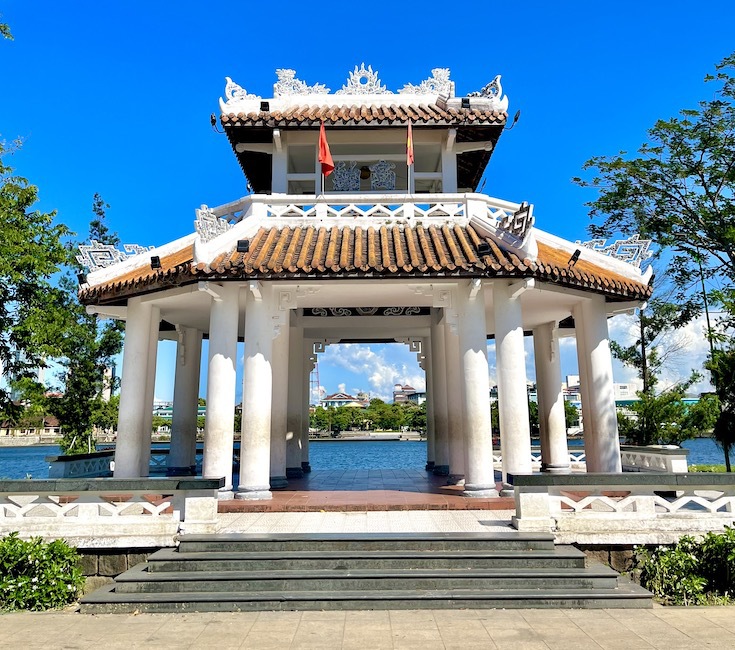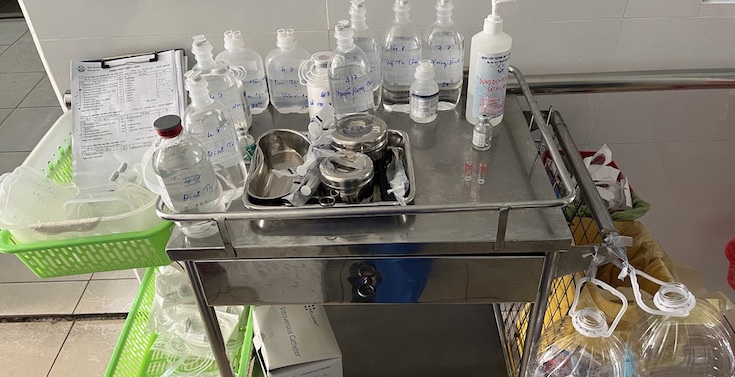In this video, Laura updates us on her International Elective Placement in Vietnam. Now halfway through her placement, she takes us through how her elective has been going, what she’s learnt, and differences between Vietnamese and U.K healthcare.
Hi, my name's Laura and I'm an adult nursing student, and I'm filming today from Huế in Vietnam. As you might have seen previously, I did a video explaining that I have been given the opportunity to do an international placement as part of my university course, so today I'm giving a little update as I approach the halfway mark.
So, I have come to Vietnam on a full week international placement. I have done one week on oncology. I'm coming to the end of my first week on A&E, and I've then got another week in A&E. And then I have a week on surgery before I do a few days of traveling, and then I come back home to the UK.

How Has The Elective Been So Far?
So how has it been so far? Getting to Vietnam was a bit of a nightmare. There were a few hiccups on the way, but once I got here that's kind of forgotten about. I mean, it's quite funny, I laugh at it now.
My boarding pass was wrong, so I had to sort that out last minute. The 13-and-a-half-hour flight from London to Malaysia, they didn't have a gluten-free option for me, so I had to live off fruit. So when I transferred flights in Malaysia, I was pretty hungry and moody at that point, but it's fine. I'm here.
How am I finding this trip? This trip has been good. It's been really good. The only bad thing I have to say is that I am always tired. The heat is taking it out of me. It's about 35 to 40 degrees every day and I didn't realize that it would take so much energy out of me. So I do constantly feel tired and it's a constant battle of dehydration as well, which then obviously makes you feel more tired, but that's fine. We can work with that.
The placement itself is eye-opening. I think that's the word. It's really good. I would definitely recommend it, but it is definitely eye-opening.

Differences In Cost
Especially before I left, I was interested to see how money would influence people's treatment. And whilst I was on oncology last week, I got to watch a mastectomy and an axial lymph node removal because there was breast cancer and cancer in her lymph nodes.
I was speaking to the doctor about this; obviously, I brought up the money question. I was like, "Well, so how much has this cost the patient?" And he told me it costs the equivalent of 75 quid for her to have this mastectomy, which I was obviously shocked about because I was expecting it to be quite a lot more.
But it turns out, in Vietnam, children have free healthcare up until about the age of 12 if (I remember rightly). And then adults have to get health insurance, but the health insurance will pay 80% of the cost, so you only pay 20% of the cost upfront.
So that £75 was 20% of the cost of the mastectomy, which the lady paid, and then her insurance will pay the other 80% of the mastectomy, which it didn't have as much of an influence as what I thought it would. I was expecting it to cost a lot more. But it's a good thing that it doesn't cost as much as what I thought it would.
But he did raise a point that with some of the newer cancer treatments, the insurance policies won't cover it. So, if you can't afford to pay, especially for some of the newer and more expensive cancer treatments, you won't have that treatment. So, it does affect it, but not as bad as what I thought it would've affected it.










About this contributor
Student Nurse
Hi I’m Laura and I’m a student nurse studying adult nursing. I have recently joined the nurses.co.uk team and look forward to creating content in the coming months. I have an interest in learning disabilities and an amazing opportunity to complete an international elective in summer.
More by this contributorWant to get involved in the discussion?
Log In Subscribe to comment